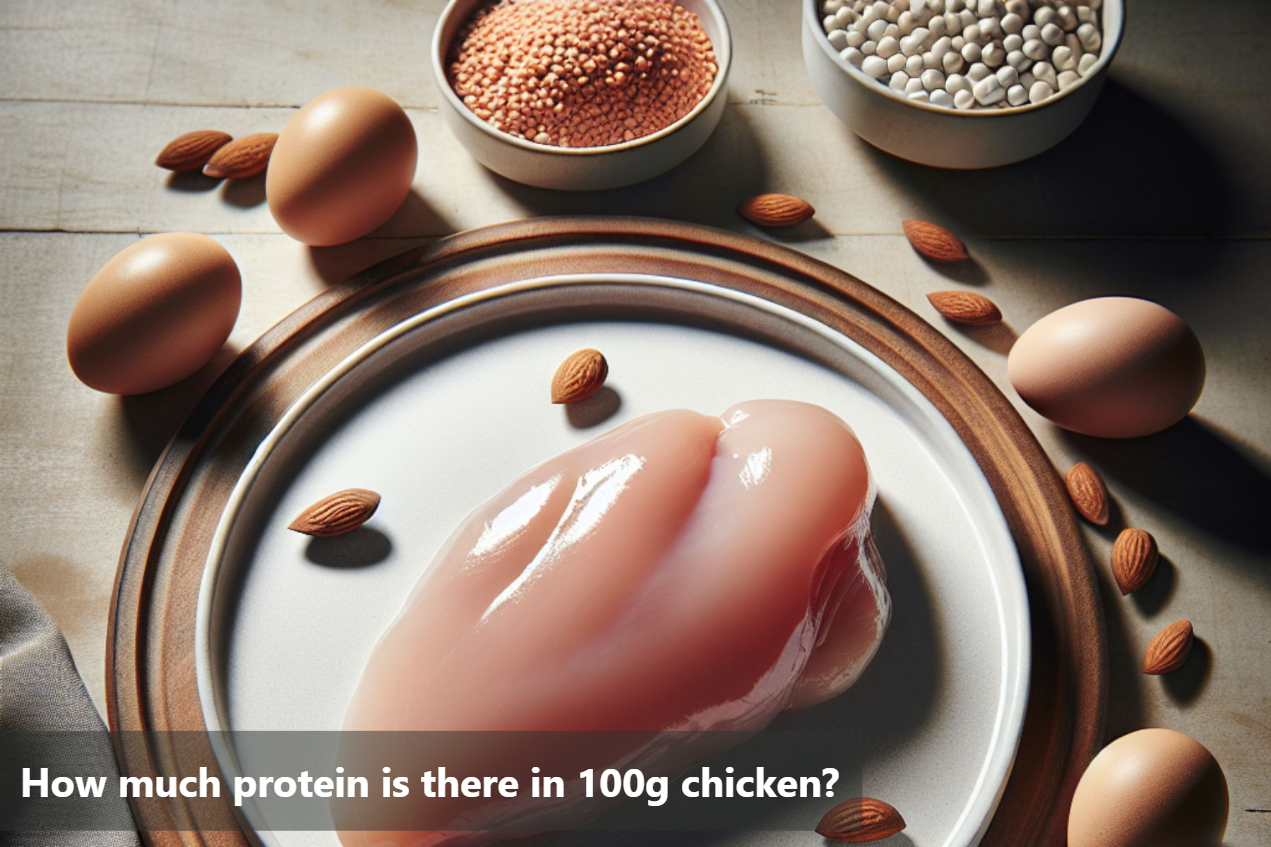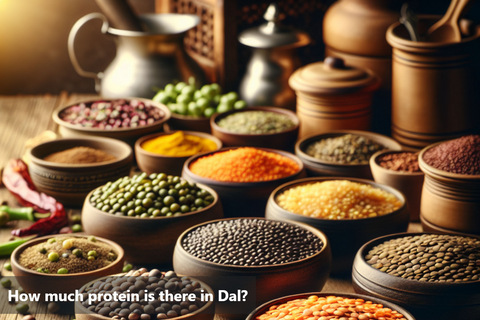
How much protein is there in 100g chicken?
Protein plays a crucial role in maintaining overall health and well-being. When it comes to protein content in chicken, it serves as a popular and nutritious source. In 100 grams of chicken, you can find a significant amount of protein, making it a valuable addition to a balanced diet.
For individuals seeking to increase their protein intake, including chicken in meals can be a practical choice. The protein content in 100 grams of chicken varies depending on the cut and preparation method. Understanding how much protein is present in 100 grams of chicken can help individuals meet their daily protein requirements effectively.
Including chicken in your diet not only provides protein but also offers essential nutrients like vitamins and minerals. This makes chicken a versatile and wholesome food option for individuals looking to maintain a healthy lifestyle. Whether you prefer grilled, baked, or sautéed chicken, each preparation method can offer a delicious way to incorporate protein into your meals.
In the upcoming sections, we will delve deeper into the nutritional value of chicken, exploring its protein content in comparison to other sources, and the recommended daily intake of protein for optimum health.
Nutritional Value of Chicken
One skinless, boneless, cooked chicken breast (172 g) contains:
|
Calories |
284 |
|
Protein |
53.4 g |
|
Carbs |
0 g |
|
Fat |
6.2 g |
One skinless, boneless, cooked chicken thigh (116 g) contains:
|
Calories |
208 |
|
Protein |
28.8 g |
|
Carbs |
0 g |
|
Fat |
9.5 g |
One skinless, boneless chicken wing (21 g) contains:
|
Calories |
43 |
|
Protein |
6.4 g |
|
Carbs |
0 g |
|
Fat |
1.7 g |
One skinless, boneless chicken drumstick (96 g) contains:
|
Calories |
149 |
|
Protein |
23.2 g |
|
Carbs |
0 g |
|
Fat |
5.5 g |
Others
|
Chicken tenderloins |
89 calories per 3.5 oz. (100 g) |
|
Back |
239 calories per 3.5 oz. (100 g) |
|
Dark meat |
178 calories per 3.5 oz. (100 g) |
|
Light meat |
153 calories per 3.5 oz. (100 g) |
Factors Affecting Protein Content
When it comes to the protein content in chicken, several factors play a significant role in determining the nutritional value it provides.
-
One of the primary factors influencing the protein content in chicken is the type of chicken itself. For instance, organic, free-range chicken is likely to have a higher protein content compared to conventionally raised chicken due to differences in their diets and living conditions.
-
Moreover, the cooking method employed can also impact the protein content of chicken. Grilling or baking chicken is known to retain more protein compared to deep-frying, which may cause some loss of protein during the cooking process. Therefore, opting for healthier cooking methods can help preserve the protein content in chicken.
-
Additionally, portion size is another crucial factor to consider when evaluating the protein intake from chicken. While 100g of chicken typically provides a specific amount of protein, consuming larger or smaller portions will directly affect the total protein intake. It is essential to be mindful of serving sizes to ensure an adequate protein consumption.
By being aware of these factors affecting the protein content in chicken, individuals can make informed decisions about their dietary choices, optimize their protein intake, and overall nutritional well-being.
Benefits
-
High-Quality Protein: Chicken is rich in high-quality protein, essential for muscle growth, repair, and overall body function.
-
Nutrient-Dense: It provides essential vitamins and minerals such as B vitamins, selenium, and phosphorus, supporting energy metabolism and bone health.
-
Weight Management: Chicken is low in calories and fat, making it a great option for those looking to manage their weight while still getting essential nutrients.
-
Heart Health: Lean cuts of chicken, particularly without the skin, are low in saturated fat and cholesterol, promoting heart health and reducing the risk of cardiovascular diseases.
-
Boosts Metabolism: The protein content in chicken can help boost metabolism, aiding in weight loss and maintenance of a healthy body composition.
-
Blood Sugar Regulation: Consuming chicken as part of a balanced meal can help stabilize blood sugar levels due to its low glycemic index and high protein content.
-
Versatility: Chicken can be prepared in numerous ways, allowing for versatility in meal planning and satisfying various taste preferences.
-
Easy to Digest: Compared to red meats, chicken is generally easier to digest, making it suitable for individuals with sensitive stomachs or digestive issues.
-
Promotes Muscle Health: Chicken contains essential amino acids necessary for muscle growth and repair, making it an ideal food choice for athletes and those leading an active lifestyle.
-
Convenient and Accessible: Chicken is widely available, relatively affordable, and easy to prepare, making it a convenient option for meals and snacks.
Protein Breakdown: Examining 100g of Chicken
The protein content in 100g of chicken plays a crucial role in maintaining a balanced and healthy diet. With approximately 31 grams of protein in a 100g serving, chicken serves as an excellent source of this essential nutrient. This high protein content makes chicken a popular choice for individuals looking to meet their daily protein needs effectively.
Apart from its protein content, chicken also offers a variety of essential nutrients vital for overall health and well-being. Including chicken in your diet can provide important vitamins, minerals, and amino acids necessary for various bodily functions. Considering the versatility of chicken in cooking methods and recipes, it can easily fit into a well-rounded meal plan. Whether grilled, baked, or sautéed, chicken remains a flavorful and nutritious option for protein intake.
Incorporating chicken as a protein source can help in muscle growth, repair tissues, boost metabolism, and keep you feeling full and satisfied. Therefore, including chicken in your diet as a protein-rich food is a smart choice for maintaining a healthy lifestyle.
This Blog post is an initiative by Lo! Foods, to provide accurate and Nutritionist / Doctor approved information related to Health. Lo! Foods is India's leading brand for Everyday Functional Foods. Foods designed for specific Health conditions or Needs. Lo! Foods also runs India's largest range of Low Carb Healthy Cloud Kitchens, under the brand names of Lo!, ProteinChef, ATH (All Things Healthy) and DiabeSmart.















Leave a comment
Your email address will not be published.